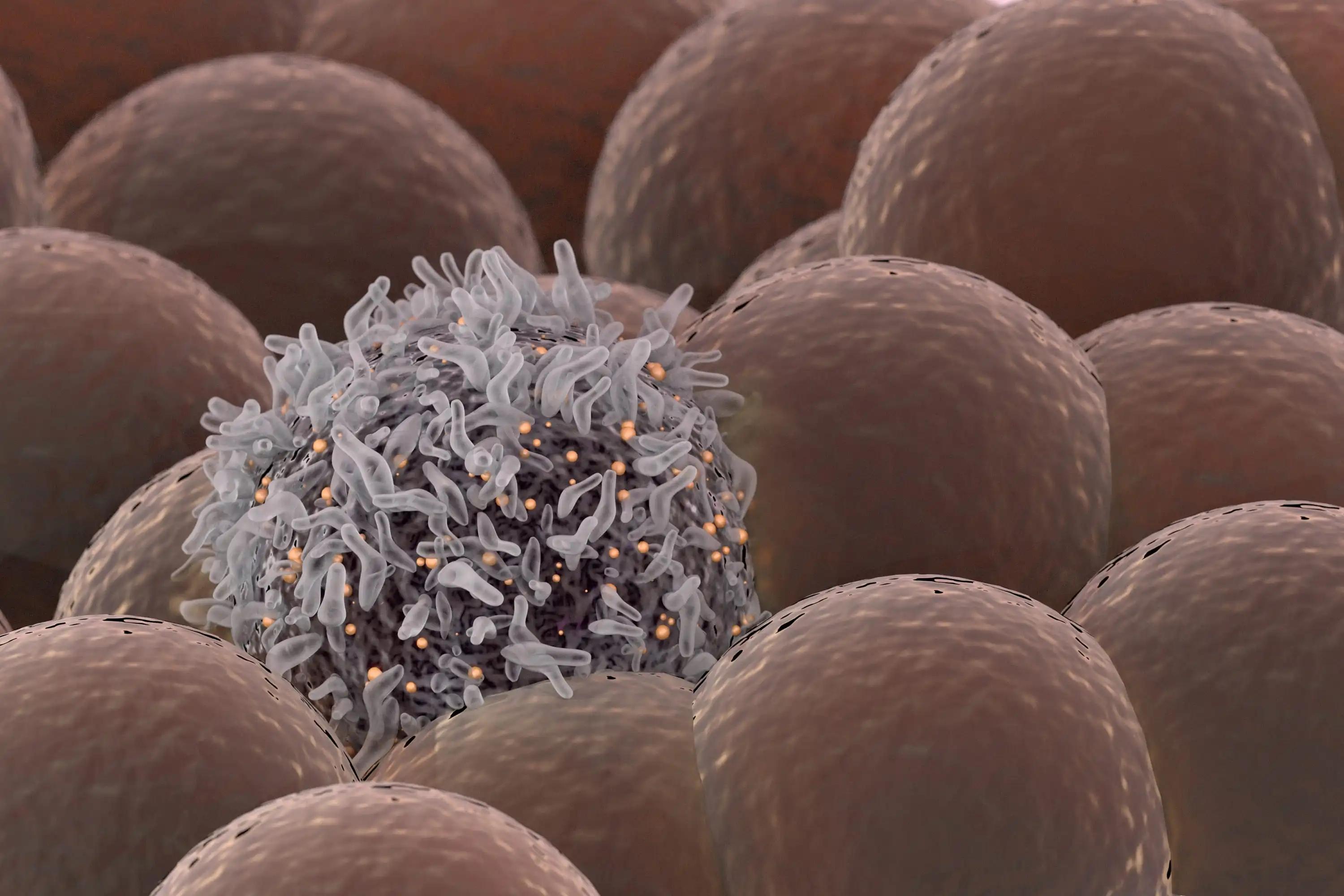KEY TAKEAWAYS
- The CheckMate-915 phase III trial evaluated adjuvant nivolumab plus ipilimumab versus nivolumab alone in patients with resected stage IIIB-D or IV melanoma.
- The trial’s primary aim was to assess the RFS in randomly assigned patients and the tumor-programmed death ligand 1 (PD-L1) expression level < 1% subgroup.
- At a minimum follow-up of approximately 23.7 months, there was no significant difference between treatment groups for RFS in the all-randomly assigned patient population.
- Treatment-related grade 3 or 4 adverse events were reported in 32.6% of patients in the combination group and 12.8% in the nivolumab group.
- Nivolumab showed efficacy consistent with previous adjuvant studies in a population resembling current practice using American Joint Committee on Cancer eighth edition.
Both ipilimumab and nivolumab have been effective in treating high-risk, surgically-removed melanoma. Adjuvant nivolumab with ipilimumab vs nivolumab alone for patients with resected stage IIIB-D or IV melanoma were compared in the phase III CheckMate-915 study. For over a year, 1,833 individuals in a randomized, double-blind, phase III trial were given either nivolumab 240 mg every 2 weeks + ipilimumab 1 mg/kg every 6 weeks (916 patients) or nivolumab 480 mg every 4 weeks (917 patients) for ≤ 1 year. Patients were then divided into groups based on the expression level of the PD-L1 protein in their tumors. Relapse-free survival (RFS) in randomized participants and RFS in the subset of patients with tumors expressing < 1% PD-L1 were the primary end goals.
No significant difference in RFS was observed between treatment groups in the overall randomly assigned patient population (hazard ratio, 0.92; 95% CI, 0.77 to 1.09; P =.269) or in patients with PD-L1 expression < 1% (hazard ratio, 0.91; 95% CI, 0.73 to 1.14; P =.269) at a minimum follow-up of approximately 23.7 months. There was a 64.6% (combination) and 63.2% (total) RFS at 24 months in all patients (nivolumab). Patients in the combination group were more likely than those in the nivolumab group to report treatment-related adverse events of grade 3 or 4, with 32.6% and 12.8%, respectively. In the combination group, 0.4% of patients died due to their treatment, while in the nivolumab group, 0% died. In patients with stage IIIB-D or stage IV melanoma, adding ipilimumab 1 mg/kg once every 6 weeks to nivolumab 480 mg once every 4 weeks did not enhance RFS. Reaffirming nivolumab as a standard of care for melanoma adjuvant treatment, it showed efficacy commensurate with previous adjuvant studies in a population similar to current practice using the American Joint Committee on Cancer eighth edition.
Source: https://pubmed.ncbi.nlm.nih.gov/36162037/
Clinical Trial: https://clinicaltrials.gov/ct2/show/NCT03068455
Weber JS, Schadendorf D, Del Vecchio M, Larkin J, Atkinson V, Schenker M, Pigozzo J, Gogas H, Dalle S, Meyer N, Ascierto PA, Sandhu S, Eigentler T, Gutzmer R, Hassel JC, Robert C, Carlino MS, Di Giacomo AM, Butler MO, Muñoz-Couselo E, Brown MP, Rutkowski P, Haydon A, Grob JJ, Schachter J, Queirolo P, de la Cruz-Merino L, van der Westhuizen A, Menzies AM, Re S, Bas T, de Pril V, Braverman J, Tenney DJ, Tang H, Long GV. Adjuvant Therapy of Nivolumab Combined With Ipilimumab Versus Nivolumab Alone in Patients With Resected Stage IIIB-D or Stage IV Melanoma (CheckMate 915). J Clin Oncol. 2023 Jan 20;41(3):517-527. doi: 10.1200/JCO.22.00533. Epub 2022 Sep 26. PMID: 36162037; PMCID: PMC9870220.



